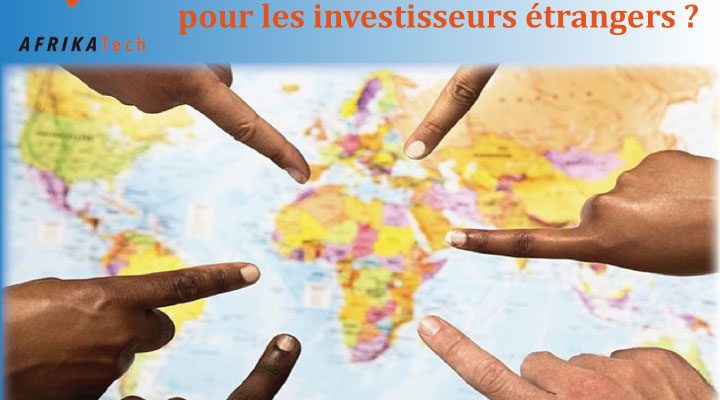L’Afrique de l’Ouest s’étend de la région du Nord du Golfe de Guinée jusqu’au Sahara et compte seize pays : le Bénin, le Burkina Faso, le Cap vert, la Côte d’Ivoire, la Gambie, le Ghana, la Guinée, la Guinée-Bissau, le Libéria, le Mali, la Mauritanie, le Niger, le Nigéria, le Sénégal, La Sierra-Leone et le Togo.
L’Afrique Subsaharienne est l’étendue du continent africain au sud du Sahara, séparée écologiquement des pays du Nord par le climat rude du désert. Elle est constituée de 48 Etats répartis en quatre sous-régions.
Des investisseurs présents qui souhaitent renouveler leur confiance
L’étude la plus récente menée sur le financement de la croissance africaine par le groupe Havas Horizons et publiée en fin juillet 2018 sous le titre « Financer la croissance africaine à l’horizon 2023 : perception des investisseurs internationaux » a révélé que 92% des investisseurs internationaux sont optimistes et souhaitent renouveler leur confiance pour les cinq prochaines années face à des perspectives économiques prometteuses.
Aussi, sur 55 des plus grandes institutions financières et bancaires présentes en Afrique (à l’instar de Sanofi, Société Générale, BNP Paribas etc.) environ 63% d’entre elles réaffirment leur volonté de maintenir voire accroître leurs investissements en Afrique. Les secteurs les plus prisés sont l’énergie, l’agriculture, les services financiers appuyées par les innovations des nouvelles technologies, la grande distribution. A ces derniers sont associés le secteur du transport et de la logistique. A l’horizon 2022, le Kenya, la Côte d’ivoire, l’Ethiopie, le Nigeria, et le Sénégal seront les pays les plus convoités par les investisseurs, toujours selon ce sondage.
L’Afrique : 75% du chiffre d’affaires des entreprises françaises d’ici 2025
Le cabinet conseil européen BearingPoint, dans une étude, a indiqué que l’augmentation de la part de l’Afrique sur le chiffre d’affaires des entreprises françaises sera de 75% d’ici 2025. L’Afrique représente 16% de la population mondiale et devrait atteindre les 25% en 2050, cette explosion de croissance démographique couplée à une urbanisation grandissante, révèlent le besoin en investissements de long terme. Ces données démontrent l’intérêt des investisseurs pour de nouvelles opportunités.
La croissance économique la plus forte après l’Asie
L’économie de l’Afrique subsaharienne est très dépendante des prix des matières premières. Malgré une baisse observée entre 2015 et 2016 liée à la chute des prix de ces matières premières, la croissance économique subsaharienne reste la deuxième plus forte après celle de l’Asie. Grâce des organismes comme l’OHADA (Organisation pour l’Harmonisation en Afrique du Droit des Affaires) la gouvernance régionale se consolide favorisant ainsi les investissements.
Les Investissements Directs Etrangers progressent en Afrique
Selon le World Investment Report du 12 Juin 2018 par la CNUCED (Conférence des Nations Unies sur le Commerce et le Développement), les investissements directs étrangers (IDE) ont connu une progression de 11% en Afrique soit 46 Milliards de dollars. Plusieurs pays africains en sont bénéficiaires. En 2018, le top 5 est le suivant :
- L’Egypte est la nation africaine qui reçoit le plus d’IDE soit 6,8 milliards de dollars pour une baisse de 7% par rapport à l’année 2017.
- l’Afrique du Sud qui a vu son investissement plus que doubler par rapport à 2017 pour une valeur de 5,3 milliards de dollars.
- la République Démocratique du Congo avec 4,3 milliards de dollars.
- le Maroc (3,6 milliards de dollars).
- l’Ethiopie (3,3 milliards de dollars).
De façon globale en 2018, l’Afrique subsaharienne a reçu 32 milliards de dollars d’IDE soit une hausse de 13% par rapport à l’année 2017. L’Afrique du Nord (Egypte, Maroc) a perçu des IDE d’un montant de 14 milliards de dollars soit une hausse de 7% sur l’année précédente. En Afrique de l’Est, les investissements étrangers sont restés constants soit 9 milliards de dollars. En Afrique de l’Ouest, le montant global des IDE a baissé de 15% affichant ainsi 9,6 milliards à cause des performances en baisse du Nigéria (-43% à deux milliards de dollars) et du Ghana (-8%, à trois milliards de dollars).
Une croissance économique stable
Le dernier rapport de la Banque Africaine de Développement (BAD) intitulé ‘’Perspectives économiques en Afrique 2020’’ a révélé que la croissance économique de l’Afrique est restée stable en 2019 soit 3,4%. L’Afrique de l’Est a eu une croissance de 5%, l’Afrique du Nord 4,1%, l’Afrique de l’Ouest 3,7%, l’Afrique centrale 3,2% et l’Afrique Australe 0,7%. En Outre, la Banque Mondiale a précisé que quatre des cinq économies les plus dynamiques du monde sont africaines ce sont la Côte d’Ivoire, l’Ethiopie, le Ghana et le Rwanda.
L’Afrique de l’Ouest présente dans le top 10 des pays où investir en Afrique
La neuvième édition du rapport ‘’Where to invest in Africa’’, rendu par le groupe financier Sud-Africain Rand Merchant Bank (RMD) concernant les pays où investir serait un choix judicieux en 2020, révèle que l’Egypte occupe toujours la première place des pays les plus attractifs pour les investisseurs. Cette position maintenue depuis trois années déjà est favorisé par un marché démographique important, un environnement des affaires et une politique d’industrialisation favorables mis en place par le gouvernement. La seconde place est occupée par le Maroc, l’Afrique de Sud occupe désormais la troisième place. En quatrième position vient le Kenya. Le top 10 est complété successivement par le Rwanda, le Ghana, la Côte d’Ivoire, le Nigéria, l’Ethiopie et la Tunisie.
L’Afrique de l’Ouest est donc représentée, dans le top 10 des pays où investir en Afrique, par le Ghana, la Côte d’Ivoire et le Nigéria. Quand souhaitez-vous vous lancer ?


Leave a Reply